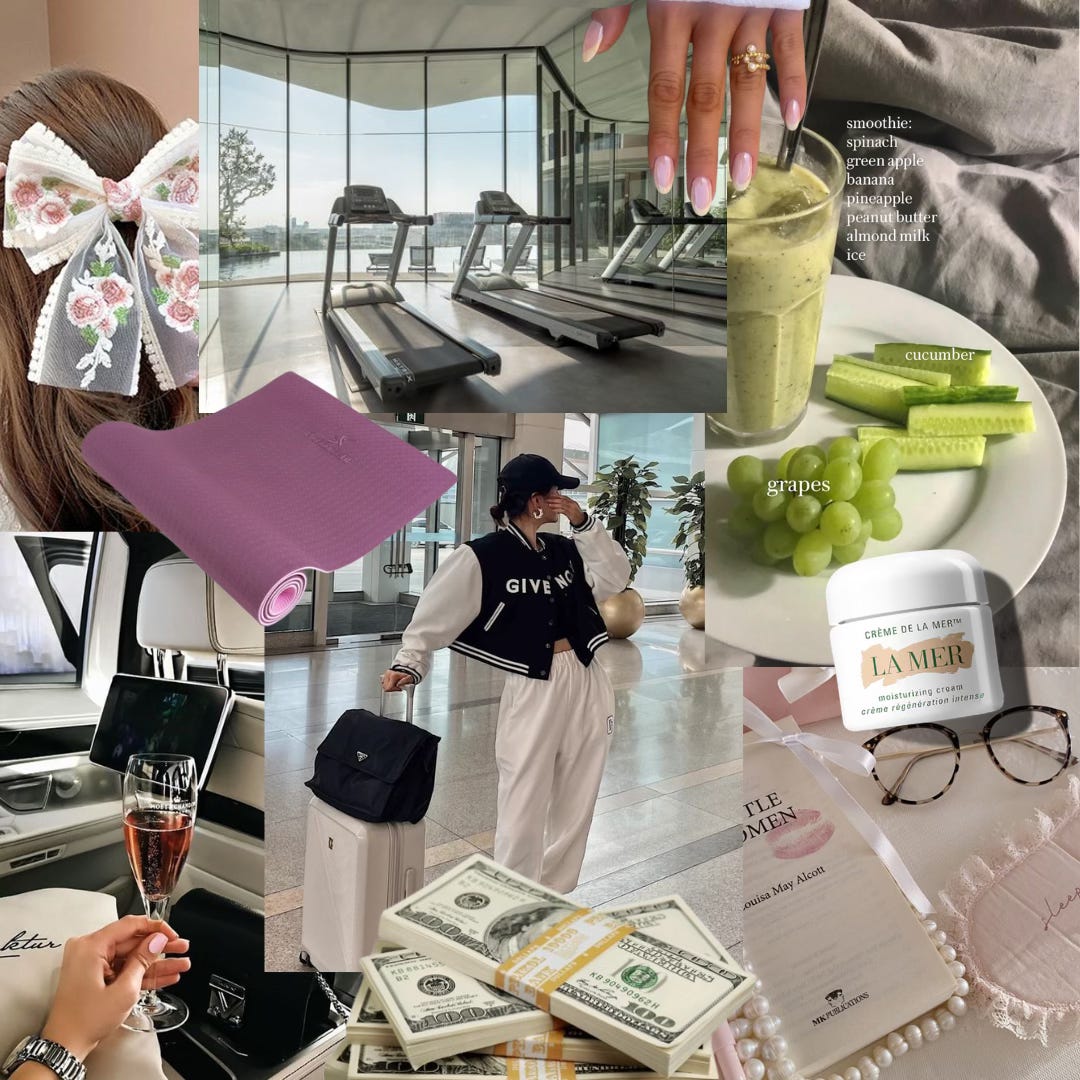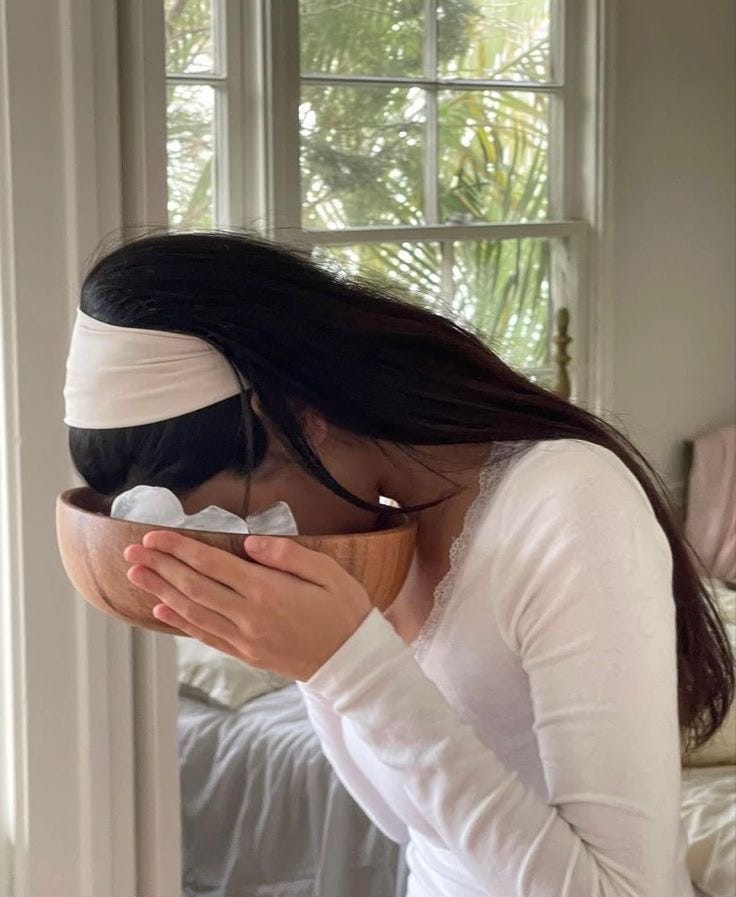As someone who loves to capture and edit photos, I can somewhat understand the amount of time and effort that goes into the work that influencers do. Beyond just posting pictures on Instagram, a lot of them take and edit videos, dabble in graphic design, and have to work hard to market themselves to brands when they’re starting out. They also have the pressure to be “authentic” enough to form a community.
Influencers boost the economy and create jobs. They may also promote social causes that are relevant to us. Some of them are role models we look up to. My personal favorite type of influencers are personal finance and slow living influencers - such as vloggers Ali Abdaal and Plan D on YouTube. There are tons of other people on YouTube who make educational long-form content while simultaneously running ads, but it doesn’t feel too bad when you watch them because you are getting value out of what you’re watching. Same thing with Substack. There are tons of content creators on here (not yet influencers as most of them are not being monetized) that make insightful posts about international travel, reading lists, late stage capitalism, etc.
But then you have influencers that have made the Internet a toxic place. Specifically - the lifestyle micro influencers who have regular day jobs like the rest of us or are upper middle class at best but act like they’re millionaires. Their content is so eerily similar you can’t tell them apart. They’re all buying clothes from Aritzia, Reformation, Alo, and Revolve. One day they’re clean girls. The next they’re coquette because the whole Pilates and Erewhon smoothies vibe isn’t as cool anymore. And now - scrap the pink bows and lacy socks - the Y2K low rise jeans and colorful hair clips are back!
They continue to go on their 6 vacations a year while the inflation rate in the US soars because staying at home and saving money is unsexy. So is repeating outfits. There’s something inherently dystopian about the persistent flex culture in the middle of an economic crisis. It’s almost anti-intellectual for me to scroll through multiple TikToks of people promoting affiliate links for the same Amazon products or to swipe past 10 Instagram stories of influencers striking similar poses in front of the Eiffel Tower. I’m so sick of the algorithm forcing me to watch certain content that I have voluntarily restricted my time on both TikTok and Instagram. In fact, before finding Substack, I spent most of my time on Threads because there was little to no influencer marketing on there and it reminded me a lot of Tumblr.
As I’ve mentioned previously regarding the desi lifestyle influencer culture, a lot of women are unwilling to admit to their audience that they underwent any cosmetic changes. I have experimented with this myself because I’ve had moments in my twenties where I wanted to enhance my features to appear more conventionally attractive. For example, in 2018, I had my eyebrows microbladed to conform to the beauty trend of having thick, defined eyebrows. I have never shied away from telling people about my small changes, but I find a lot of people with a large fanbase would rather pretend they were “born this way” than admit they have insecurities or that they had to pay to fit into beauty norms.
I recently unfollowed a few people I knew on Instagram - some of who are lifestyle micro influencers. I know not every influencer is like this, but there’s something about having a large follower count that is considered akin to currency. The more followers you have, the more socially “important” and “valuable” you are. I see how people really think like this and act as if they are celebrities in real life. I knew someone who I was acquainted with for a few years and was cordial with, only to be ignored in public once she started gaining social clout. And by social clout, I mean surpassing an Instagram following above 1k followers. The most interaction we’ve had in the past year is her adding me on LinkedIn. Most of the influencers I have personally known or have been acquainted with try so hard to be perceived as girls’ girls when people literally have receipts of them trying to knock other women off their pedestals. I have witnessed a few pretending to be friends with each other to look like they have a lot of friends, only for them to have a falling out a few months later or slowly drift away once they had served each others’ purpose. I’ve even had some of these people feign being nice to me or appear happy for me when my life was going well - only for me to figure out they ask other people about me to keep tabs on me or make backhanded comments.
I honestly can’t blame a lot of these people for displaying narcissistic traits. We as a society attribute beauty, wealth, and fame to being higher value. Thanks to instant gratification, we reward those who create aesthetically pleasing photos and videos over content that is beautiful and thought-provoking once you scratch beyond the surface. We spam influencer’s content sections with “ur so pretty” and create fan pages with their recycled photos. We covet their Lady Dior bags and end up going for the dupes if we can’t afford the price tag. We become outraged when our parasocial relationships are betrayed: such as when they rudely respond to a question we asked or when they support a political cause that is against our ideology.
Like I mentioned earlier, influencers do work that takes a certain amount of skill - whether we want to give them credit or not. But not every influencer is equal in the overall impact they have on society. And this is why a lot of lifestyle influencers need to urgently rebrand before a majority of their following turns on them or flees to influencers who are more honest about their day-to-day activities. Because of growing social inequality, most of us are sick of flex culture. I blame Millennials for starting it, but us and the older Gen Z generation should know it’s the end of our era. People are no longer buying that our lives are perfect. It gets tackier to act like our lives are amazing and carefree with each passing day. This is why we’ve had the rise in silent vlogs and slow living influencers since the pandemic. It’s time that we all touch grass and realize there are bigger problems in the world than portraying ourselves in an unrealistically idealized way for the numbers game.
My newsletter is currently free - if you would like you support me, you can buy me a coffee. ☕️🤍 You can also leave suggestions on what you would like for me to post next!







I also do agree that influencers do add some value to our lives. It allowed the opportunity for anyone to create content and in that way gave voices to people who don't get represented in mainstream media. It made me feel seen and heard to have my culture represented in an empowering way.
This piece is such a mood Aliena!! I really felt every word of this especially as someone who’s got into the loop of content creation herself on Instagram, but I always strive for authenticity on my page and don’t want to come across as fake or putting on a facade on my page. I also felt on a deep level potentially getting plastic surgery on my big nose to blend into society’s norms but it’s taken a lot to realise that us Pakistani girls are beautiful in our own unique and silly ways and plastic surgery would only make us look like those plastic influencers across Instagram and whatnot. Proud of you for this piece, again writing what all of us NEED to hear terribly 👏🏻💯